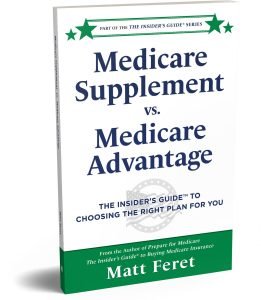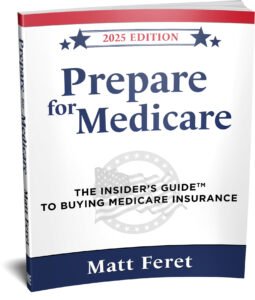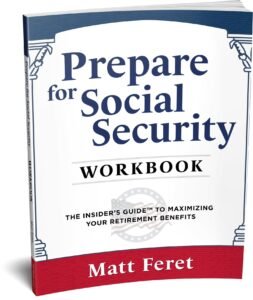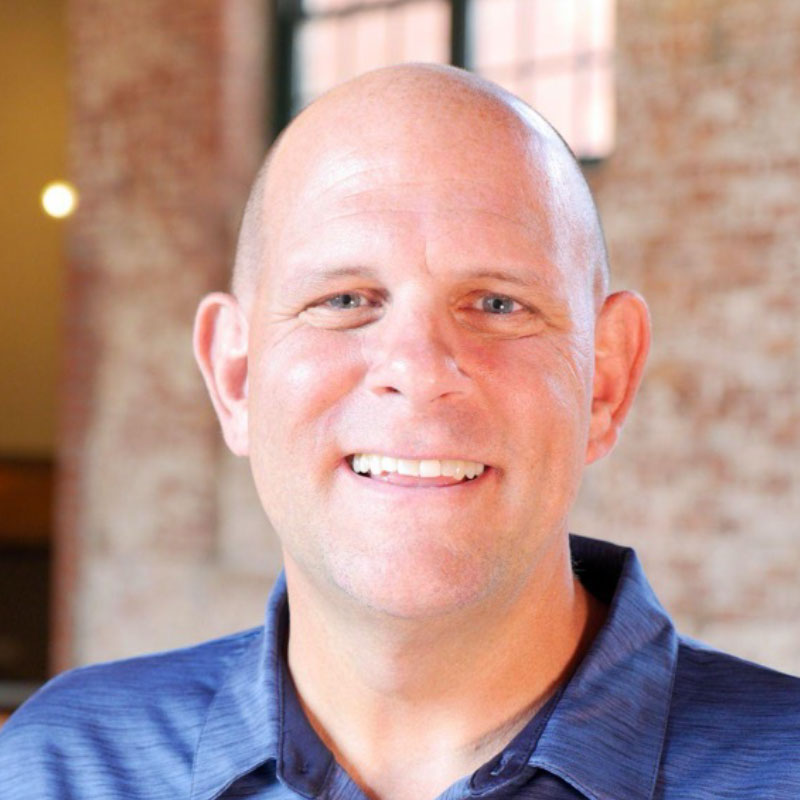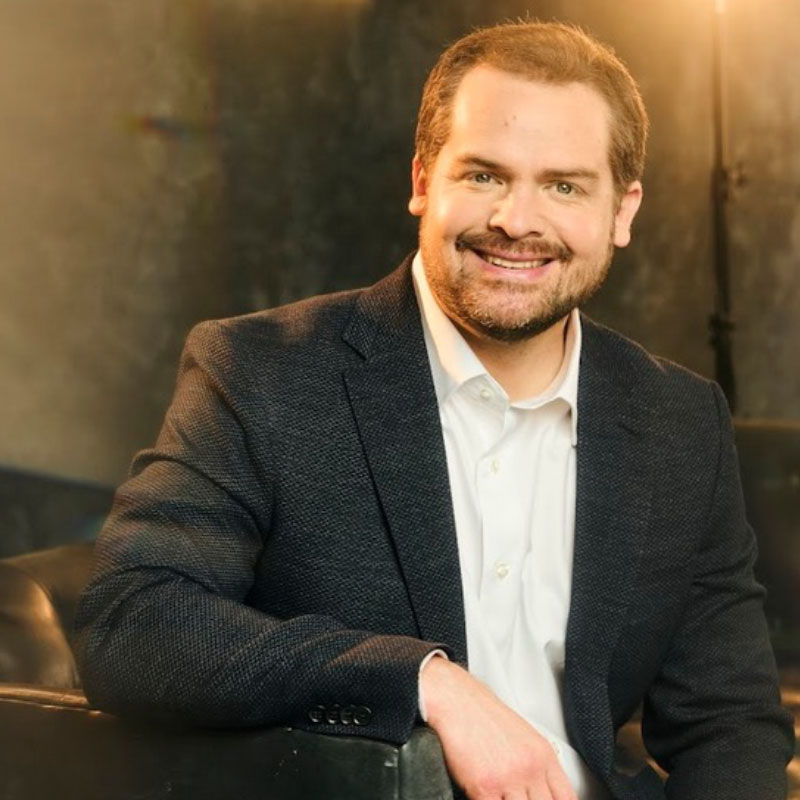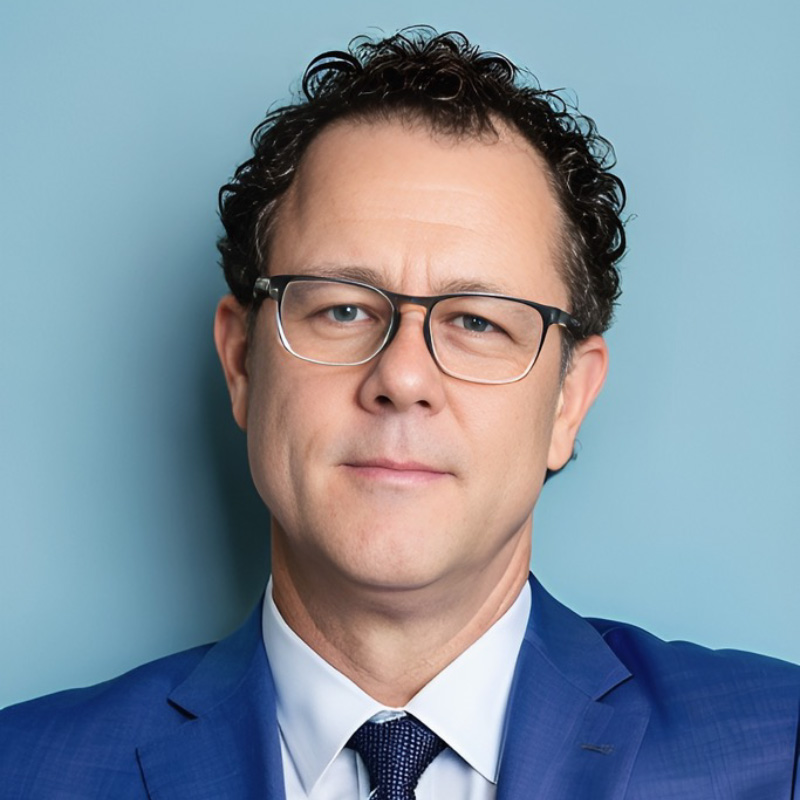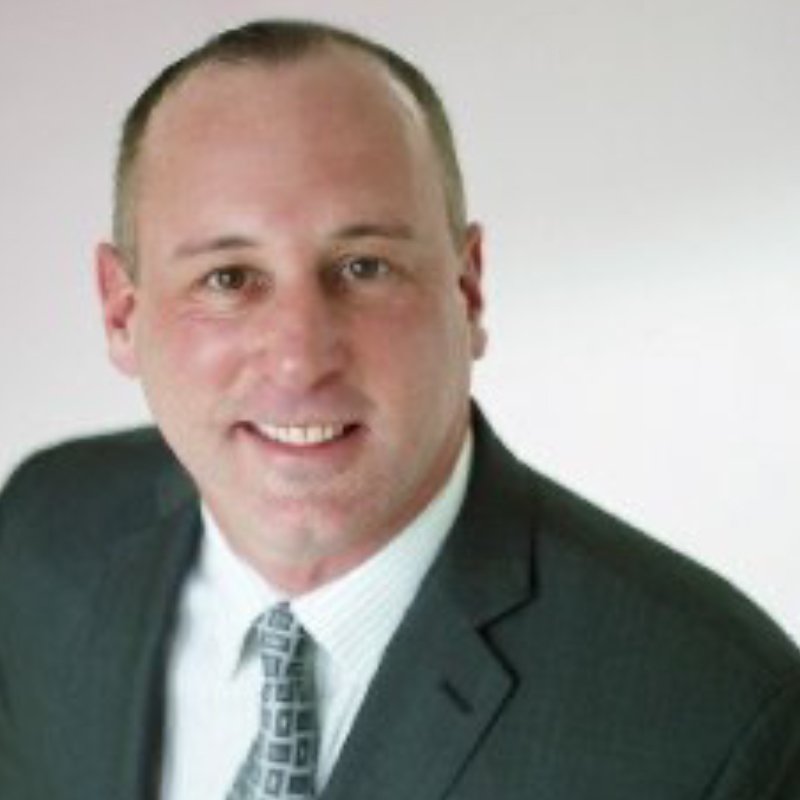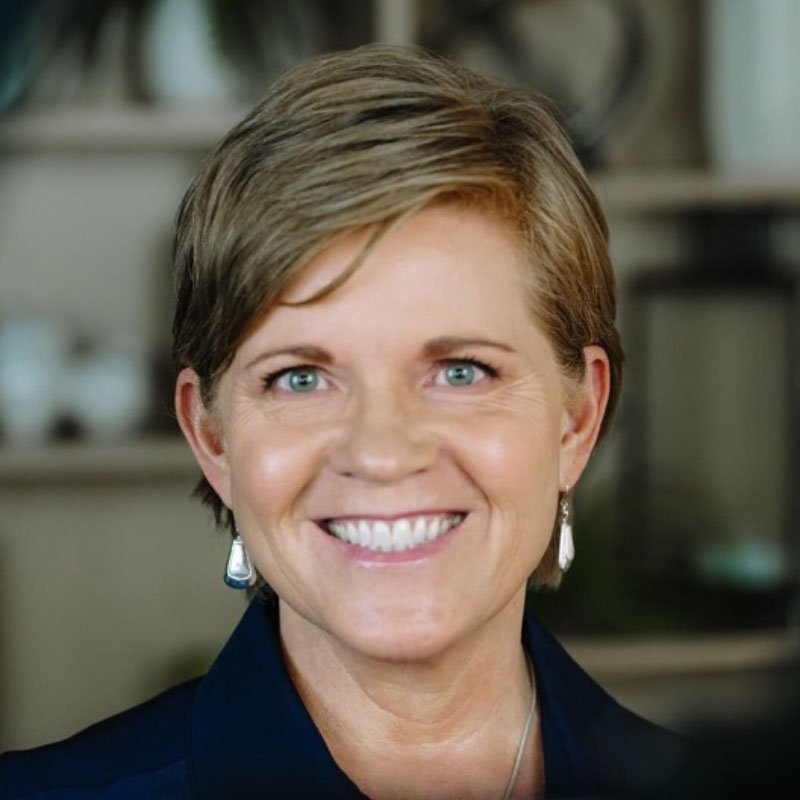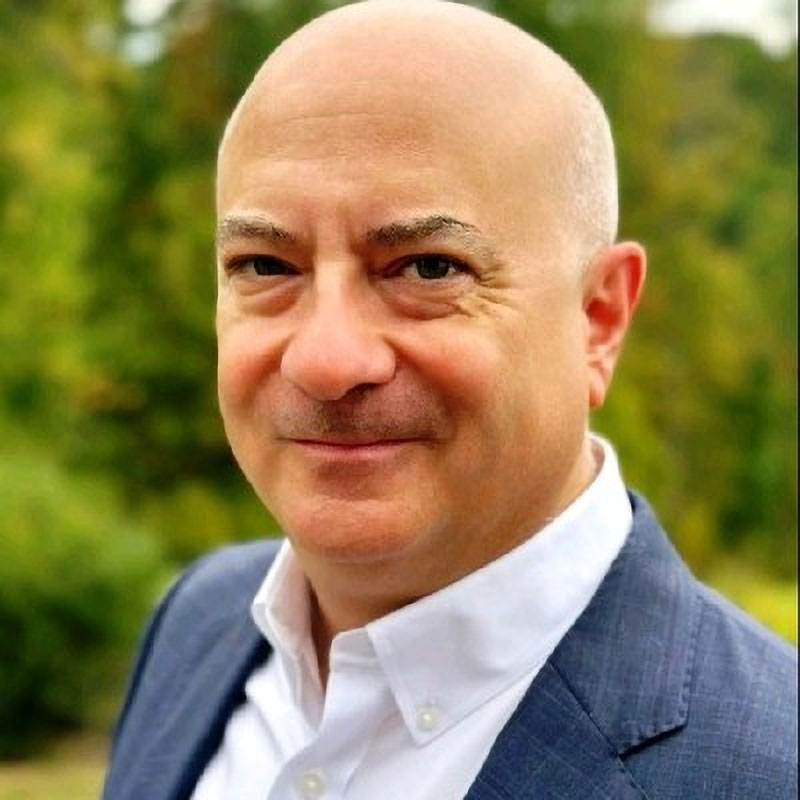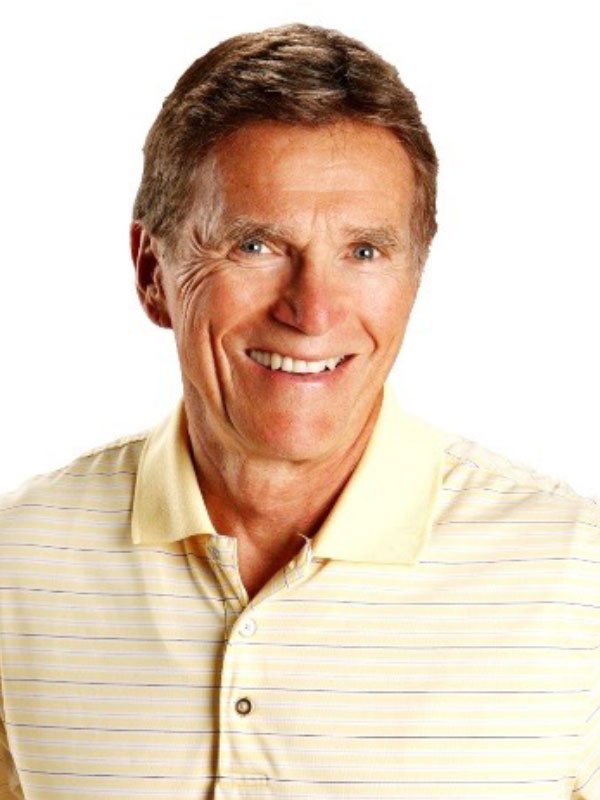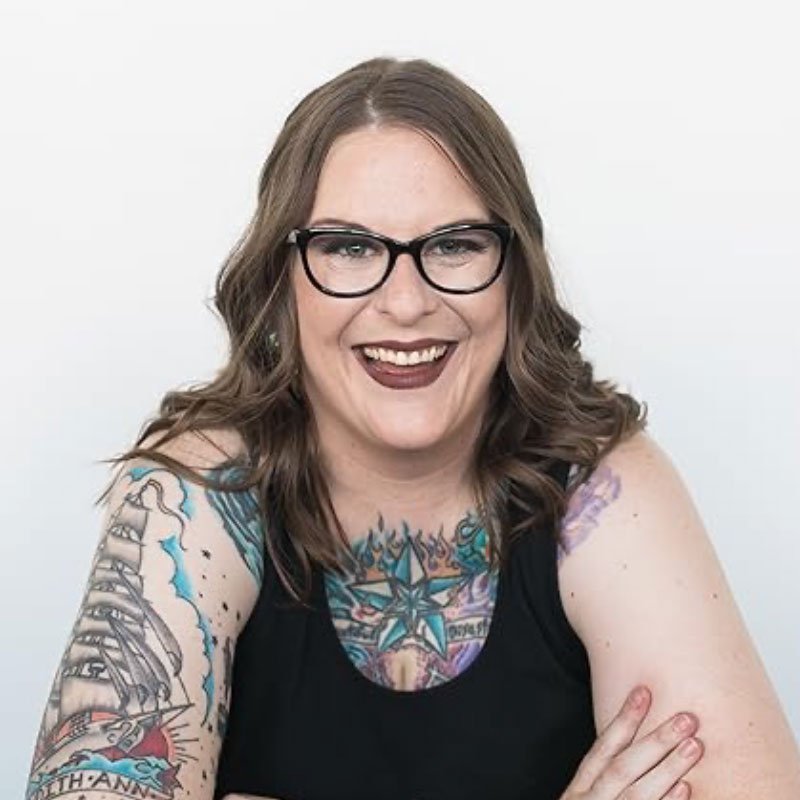#101
Share This:
Most people are taught to save, invest in a 401(k), and hope it all works out in retirement. But what if that system isn’t designed to give you control when you need it most? For many in midlife, rising debt, taxes, and long-term care costs expose the cracks in traditional financial planning. That’s why today’s guest matters.
We’re joined by Brent Kesler, founder of The Money Multiplier, to break down an alternative approach to building and using wealth. Brent shares how he went from nearly $1 million in debt to debt-free in just over three years by rethinking cash flow, private family banking, and dividend-paying whole life insurance. He explains how this strategy can be used to pay off debt, invest in real estate, fund retirement, and maintain control of your money — without relying solely on Wall Street or traditional retirement accounts.
If you enjoyed this episode of The Matt Feret Show, you may also enjoy:
How To Pay Your Kid's College Without Wrecking Your Retirement
The 401(k) Playbook Has Changed (Especially for Business Owners)
Listen to the episode on Apple Podcasts, Spotify, Deezer, Podcast Addict, Stitcher, Google Podcasts, Amazon Music, Alexa Flash Briefing, iHeart, Acast or on your favorite podcast platform. You can watch the interview on YouTube here.
Brought to you by Prepare for Medicare – The Insider’s Guide book series. Sign up for the Prepare for Medicare Newsletter, an exclusive subscription-only newsletter that delivers the inside scoop to help you stay up-to-date with your Medicare insurance coverage, highlight Medicare news you can use, and reminders for important dates throughout the year. When you sign up, you’ll immediately gain access to seven FREE Medicare checklists.
I didn't have to change my cash flow. I never took any additional risk or lose or lost control of my money. I simply added one step in my financial life. So, I became really passionate about this concept. “
“I do very well. I don't starve at all. I don't miss meals. I do well. But I do take a 60 to 90 percent cut in my commission because of the way I design the policy. And I design the policy this way because it's the way I design my own policy. I am an open book. I show you everything that I'm doing in my own financial life and my own policies. I don't have anything to hide.”
“I thought to myself that these guys are basically throwing up all over me about how this is working financially in their life. So I thought to myself there had to be something to this method, right? There's no way that eight or ten of my colleagues are lying to me. Maybe one or two, but not eight or ten. So I came home and I told my wife in February of 2008, I said, honey, we've got to start implementing this concept in our life.”
Host’s Links:
All Things Medicare: prepareformedicare.com
Decoding Social Security: prepareforsocialsecurity.com
My Written Works on Amazon: www.amazon.com/stores/Matt-Feret/author/B09FM3L4WW
The Matt Feret Show YouTube: www.youtube.com/@themattferetshow
Network with me on LinkedIn: http://www.linkedin.com/in/mattferet
Follow me on X: twitter.com/feret_matt
See behind the scenes on Instagram: www.instagram.com/matt_feret/
Join our community on Facebook: www.facebook.com/themattferetshow/
Follow me on Instagram:Matt Feret (@matt_feret) • Instagram photos and videos
Guest Links:
Guest Facebook: https://www.facebook.com/themoneymultiplier
Guest Linkedin: https://www.linkedin.com/in/thebrentkesler
Guest Instagram: https://www.instagram.com/the.money.multiplier/
Guest Youtube: https://www.youtube.com/@the.money.multiplier
Guest Webpage: https://themoneymultiplier.com/
Share This:
Preparedness isn’t just personal anymore—it’s multi-generational.
On this episode of The Matt Feret Show, Matt sits down with Disaster Patrick, a professional disaster planner who helps families prepare for real-world disruptions before they become emergencies. From adult children living far away to aging parents in care facilities, Disaster Patrick explains why traditional “have a plan” advice often fails—and what actually works instead.
This conversation focuses on practical disaster preparedness for families, reducing stress during emergencies, protecting independence, and building resilience without fear or panic. You’ll learn how to think differently about emergency planning, why options matter more than plans, and how to prepare the people you care about—no matter where they live.
If you’re navigating midlife, caring for aging parents, raising kids, or simply want a smarter approach to family preparedness, this episode delivers clear, actionable insights you can use right away.
If you enjoyed this episode of The Matt Feret Show, you may also enjoy:
How to Defy the Odds After an Injury with Author Jo Giese
Preventing Cancer with a Plant-Based Diet with Dr. Dominic Brandy, M.D. , the Veggie Doc
Listen to the episode on Apple Podcasts, Spotify, Deezer, Podcast Addict, Stitcher, Google Podcasts, Amazon Music, Alexa Flash Briefing, iHeart, Acast or on your favorite podcast platform. You can watch the interview on YouTube here.
Brought to you by Prepare for Medicare – The Insider’s Guide book series. Sign up for the Prepare for Medicare Newsletter, an exclusive subscription-only newsletter that delivers the inside scoop to help you stay up-to-date with your Medicare insurance coverage, highlight Medicare news you can use, and reminders for important dates throughout the year. When you sign up, you’ll immediately gain access to seven FREE Medicare checklists.
“ I'll give you this example. I actually work with a very large apartment complex. I've been working with them for almost 15 years now. For a lot of the residents who are on the top who are non-ambulatory, they're not walking down the stairs.We actually gave them a sled. It's an inflatable sled.”
“I can look at your backpack and without asking you a single question, if you follow the method that I've laid out for you, you don't have to tell me a single thing. I could tell you in your backpack where your primary evacuation location is going to be and where the secondary location is going to be. I should be able to say the city, the location, and how to get there. I should have the key. I should have everything. The security code to the house, all that stuff. Because you don't have to write it down. It should be in there.”
“Execute plans. Don't just plan. It's the execution. Let's move the other piece. Let's pretend, let's not pretend this is real, right? You've got a lot of our listeners that are people with aging parents, not necessarily living anywhere close to them either. So how does getting prepared or helping them or doing it for them change when you might need to help somebody else quickly and that somebody else might not live near you?”
Host’s Links:
All Things Medicare: prepareformedicare.com
Decoding Social Security: prepareforsocialsecurity.com
My Written Works on Amazon: www.amazon.com/stores/Matt-Feret/author/B09FM3L4WW
The Matt Feret Show YouTube: www.youtube.com/@themattferetshow
Network with me on LinkedIn: http://www.linkedin.com/in/mattferet
Follow me on X: twitter.com/feret_matt
See behind the scenes on Instagram: www.instagram.com/matt_feret/
Join our community on Facebook: www.facebook.com/themattferetshow/
Follow me on Instagram:Matt Feret (@matt_feret) • Instagram photos and videos
Guest Links:
Guest Youtube: https://www.youtube.com/@DisasterPatrick
Guest Linkedin:(21) Patrick Hardy | LinkedIn
Guest Website:https://disasterpatrick.com/
#99
Share This:
The job market isn’t what it used to be. A strong resume and decades of experience are no longer enough to carry even the most qualified applicants, especially in a market flooded with applications and filtered by AI before a human ever looks twice. Hiring works differently now, and that shift catches a lot of experienced workers off guard. That’s why today’s guest matters big time. We’re joined by Rick Denius, founder of HR Search Co., to break down how the hiring process really works today and what job seekers need to understand to navigate it.
In this conversation, Rick walks through what he sees every day behind the scenes of hiring — why companies post jobs as a last resort, how roles actually get filled before they ever appear online, and where experienced candidates lose leverage without realizing it. He explains why applying online so often leads nowhere, how age bias quietly shows up in modern hiring (ageism is real!), and what older workers can do to stay visible and in demand.
The Matt Feret Show is about thriving in midlife, retirement, and beyond. Each week, Matt shares smart conversations on Medicare, Social Security, retirement planning, health, wealth, wellness, caregiving, and life after 50.
If you enjoyed this episode of The Matt Feret Show, you may also enjoy:
The 401(k) Playbook Has Changed (Especially for Business Owners)
How to Pay Your Kids College Without Wrecking Your Retirement
Listen to the episode on Apple Podcasts, Spotify, Deezer, Podcast Addict, Stitcher, Google Podcasts, Amazon Music, Alexa Flash Briefing, iHeart, Acast or on your favorite podcast platform. You can watch the interview on YouTube here.
Brought to you by Prepare for Medicare – The Insider’s Guide book series. Sign up for the Prepare for Medicare Newsletter, an exclusive subscription-only newsletter that delivers the inside scoop to help you stay up-to-date with your Medicare insurance coverage, highlight Medicare news you can use, and reminders for important dates throughout the year. When you sign up, you’ll immediately gain access to seven FREE Medicare checklists.
“I spend all my time facing the job market, so I’ve got battle-tested expertise and insights that I think will be helpful for your audience. And on the ageism side, I’m over 40. Up until I turned 40, I wasn’t part of any protected class. There are things people can do strategically to get in front of decision-makers and ultimately get hired.”
“When you submit your resume, or when someone is looking at you as a candidate, they will Google you. You will have a LinkedIn profile, and they will look at it. If you have anything else out there—photos of you being a Boy Scout leader or whatever—that’s fine. They’re just going to see all of it.”
“ Personality is a big piece of it. You’ll hear people say, “They were great technically, skill set-wise, but I just don’t see myself grabbing a sandwich with this person.” If you’re going to spend a third of your life—or more—at work, you want to be around people you genuinely like. People who are authentic, selfless, and team players.”
Host’s Links:
All Things Medicare: prepareformedicare.com
Decoding Social Security: prepareforsocialsecurity.com
My Written Works on Amazon: www.amazon.com/stores/Matt-Feret/author/B09FM3L4WW
The Matt Feret Show YouTube: www.youtube.com/@themattferetshow
Network with me on LinkedIn: http://www.linkedin.com/in/mattferet
Follow me on X: twitter.com/feret_matt
See behind the scenes on Instagram: www.instagram.com/matt_feret/
Join our community on Facebook: www.facebook.com/themattferetshow/
Follow me on Instagram:Matt Feret (@matt_feret) • Instagram photos and videos
Guest Links:
Linkedin: https://www.linkedin.com/in/rickdenius/
Company Linkedin: https://www.linkedin.com/company/hr-search-company
Company Website: https://chrope.substack.com/
#98
Share This:
Today is a really, really special episode. Joining the show is cardiologist and longevity expert Dr. Hosein Kiat, who has spent his professional life studying why some people age with strength and clarity while others slowly lose them. He challenges the conventional belief that longevity is simply about adding more years. The way Dr. Kat sees it, living longer matters little if those later years come with declining health and independence.
Drawing on decades of clinical experience and global research, Dr. Kiat shares his framework for protecting healthspan (not just lifespan) — the ability to move, think, and live on your own terms as you age. He walks us through what retirees should prioritize if they want their energy, mobility, and mental sharpness to last, and why many people focus on the wrong things for far too long. This one-hour conversation is packed with insights, not just for retirees, but for anyone who wants their later years to feel capable, active, and fully lived. I hope you enjoy this convo as much as I did!
If you enjoyed this episode of The Matt Feret Show, you may also enjoy:
The Yass Method Of Chronic Pain Management
Breathe Better, Sleep Better with Dr. Steven Park, Otolaryngologist and Author of Sleep, Interrupted
Listen to the episode on Apple Podcasts, Spotify, Deezer, Podcast Addict, Stitcher, Google Podcasts, Amazon Music, Alexa Flash Briefing, iHeart, Acast or on your favorite podcast platform. You can watch the interview on YouTube here.
Brought to you by Prepare for Medicare – The Insider’s Guide book series. Sign up for the Prepare for Medicare Newsletter, an exclusive subscription-only newsletter that delivers the inside scoop to help you stay up-to-date with your Medicare insurance coverage, highlight Medicare news you can use, and reminders for important dates throughout the year. When you sign up, you’ll immediately gain access to seven FREE Medicare checklists.
Infrared, for example, is direct because it’s so superficial. But yes, that’s why there hasn’t been as much work on the heart, for example, because the heart is quite deep, right? There hasn’t been as much on the kidneys because the kidneys are quite deep. But we now have publications on kidney function with red light therapy, and this has been done by one of our PhD candidates.
These studies are from a hospital called Royal North Shore Hospital in Sydney. So yes, we’re studying this now. There are direct effects, and there are indirect effects. An indirect effect is called a scopal effect. If you think about acupuncture, how does acupuncture work for your back pain? It’s not really directly affecting the disc that’s bulging, right?”
“This is a question I address almost daily with my patients. A very common scenario is that I meet someone for the first time after they’ve had an acute heart attack—often while they were away on holiday, hundreds of miles from home. They were resuscitated, they’re doing well now, and they come to see me for what they call ‘prevention.’
I say to them candidly and humbly: the best time for prevention may have already passed—it probably should have started 20 years ago. But the second-best time is now, today, right here. And that matters, because while there is strong evidence that some damage can’t be fully reversed, there is still so much we can do starting from this moment forward.”
Host’s Links:
All Things Medicare: prepareformedicare.com
Decoding Social Security: prepareforsocialsecurity.com
My Written Works on Amazon: www.amazon.com/stores/Matt-Feret/author/B09FM3L4WW
The Matt Feret Show YouTube: www.youtube.com/@themattferetshow
Network with me on LinkedIn: http://www.linkedin.com/in/mattferet
Follow me on X: twitter.com/feret_matt
See behind the scenes on Instagram: www.instagram.com/matt_feret/
Join our community on Facebook: www.facebook.com/themattferetshow/
Follow me on Instagram:Matt Feret (@matt_feret) • Instagram photos and videos
Guest Links:
Guest Youtube: Why Dr Kiat Cedars-Sinai Professor and World-Renowned Heart Doctor Started This Channel
Guest Linkedin:(20) Hosen Kiat | LinkedIn
Guest Website:Dr Hosen Kiat | Top 1% Clinical Medicine Researcher
#097
Share This:
Paying for college is one of the biggest financial shocks families face — not just because tuition keeps rising, but because the decisions parents make in the moment can have an outsized effect on their own financial future. Most people think college planning is about saving early, opening a 529, and hoping the FAFSA works out in their favor. But as college funding strategist Brian Eyster explains, the system is far more complex, and the consequences of getting it wrong often show up decades later… in retirement.
Brian joins Matt to break down the hidden rules of college-saving — the ones most parents never hear until it’s too late. In this episode, Brian reveals why traditional advice often falls short, how to legally reduce what colleges expect you to pay, and using tools like home equity, cash flow, and even student loans strategically so you protect your long-term financial health.
If you enjoyed this episode of The Matt Feret Show, you may also enjoy:
Listen to the episode on Apple Podcasts, Spotify, Deezer, Podcast Addict, Stitcher, Google Podcasts, Amazon Music, Alexa Flash Briefing, iHeart, Acast or on your favorite podcast platform. You can watch the interview on YouTube here.
Brought to you by Prepare for Medicare – The Insider’s Guide book series. Sign up for the Prepare for Medicare Newsletter, an exclusive subscription-only newsletter that delivers the inside scoop to help you stay up-to-date with your Medicare insurance coverage, highlight Medicare news you can use, and reminders for important dates throughout the year. When you sign up, you’ll immediately gain access to seven FREE Medicare checklists.
“We’ll unpack why traditional college savings plans can quietly sabotage your future and how to use home equity and cash flow more efficiently—and even how business owners…can turn college funding into a smart tax strategy.”
“If you have filed the FAFSA and no one looked over it, it is the equivalent of writing your college dissertation without any edits.”
“We took the SAI from fifty thousand dollars and got it down to three thousand…It’s a hell of a lot more than just ‘oh, I’m going to take money and dump it into a 529.’”
Host’s Links:
All Things Medicare: prepareformedicare.com
Decoding Social Security: prepareforsocialsecurity.com
My Written Works on Amazon: www.amazon.com/stores/Matt-Feret/author/B09FM3L4WW
The Matt Feret Show YouTube: www.youtube.com/@themattferetshow
Network with me on LinkedIn: http://www.linkedin.com/in/mattferet
Follow me on X: twitter.com/feret_matt
See behind the scenes on Instagram: www.instagram.com/matt_feret/
Join our community on Facebook: www.facebook.com/themattferetshow/
Follow me on Instagram:Matt Feret (@matt_feret) • Instagram photos and videos
Guest Links:
Website: www.essentialstrategies.net
Certified College Funding Specialist: https://www.hireaccfs.com/brian-eyster
#095
Share This:
Most people, especially business owners, think of a 401(k) as a basic retirement benefit. A place to stash some money for later years. Something you get once you have "enough" employees. But as 401(k) specialist Matt Rutenberg explains, that traditional view is wildly outdated. Today’s 401(k) rules allow far more flexibility, far bigger tax advantages, and far more wealth-building potential than most business owners ever realize.
Matt joins the show (two Matts, yay!) to walk through how modern 401(k)s actually work, and why almost everything you assume about them is inaccurate. He explains how plan design shapes how much you really get to save, how small business owners and even solopreneurs can legally contribute far more than they think, and how strategic layers like profit sharing, cash-balance plans, and self-directed investing change the game entirely. This episode was an eye-opener!
If you enjoyed this episode of The Matt Feret Show, you may also enjoy:
Listen to the episode on Apple Podcasts, Spotify, Deezer, Podcast Addict, Stitcher, Google Podcasts, Amazon Music, Alexa Flash Briefing, iHeart, Acast or on your favorite podcast platform. You can watch the interview on YouTube here.
Brought to you by Prepare for Medicare – The Insider’s Guide book series. Sign up for the Prepare for Medicare Newsletter, an exclusive subscription-only newsletter that delivers the inside scoop to help you stay up-to-date with your Medicare insurance coverage, highlight Medicare news you can use, and reminders for important dates throughout the year. When you sign up, you’ll immediately gain access to seven FREE Medicare checklists.
“Help me reshift or rethink about what 401Ks mean to the individual, and entrepreneurship doesn’t just mean someone that owns a company with 150 employees. Business owners have a huge advantage in terms of what’s available to them and for tools, like tax tools, right? And so if you’re a solopreneur or you’re an independent contractor or you have a side hustle…you have something available, which is the 401K, because you are self-employed.”
“A lot of people think that $23,500 is the maximum you can put into a 401K. And the reality is, once you’re a business owner, you have this self‑employed income—you don’t need an entity, you just need to have self‑employed income. As long as you’re showing that income, you can unlock this 401K. But once you do that, now we’re talking $70,000 of contributions you can put into a 401K. And even on top of that…multiple six‑digit contributions that you can get into these things.”
“In reality, it’s a tax strategy. It just has to be looked at that way. And when you do that, it just unfolds more opportunity to help scale your business or to buy more franchises or whatever it is—buy real estate, things like that. It’s just knowing how to do that and finding the tools to do it that way.”
Host’s Links:
All Things Medicare: prepareformedicare.com
Decoding Social Security: prepareforsocialsecurity.com
My Written Works on Amazon: www.amazon.com/stores/Matt-Feret/author/B09FM3L4WW
The Matt Feret Show YouTube: www.youtube.com/@themattferetshow
Network with me on LinkedIn: http://www.linkedin.com/in/mattferet
Follow me on X: twitter.com/feret_matt
See behind the scenes on Instagram: www.instagram.com/matt_feret/
Join our community on Facebook: www.facebook.com/themattferetshow/
Follow me on Instagram:Matt Feret (@matt_feret) • Instagram photos and videos
Guest Links:
Youtube: (3) Matt Ruttenberg - Financial Entrepreneur - YouTube
Website: Contact | Life, Inc Retirement Services
Linkedin: Matt Ruttenberg | LinkedIn
Instagram: Matt Ruttenberg (@matt_ruttenberg) • Instagram photos and videos
